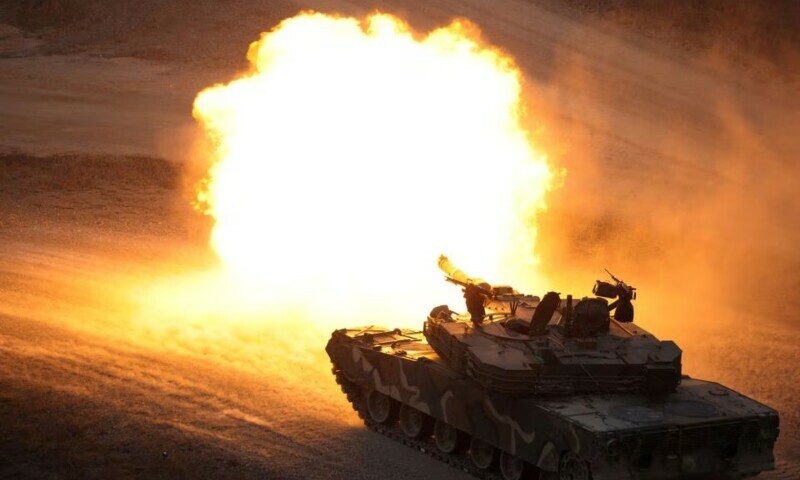LONDON: When it comes to taking stock of global emissions, there’s an elephant in the room: the world’s armed forces. As temperatures hit new highs, scientists and environmental groups are stepping up pressure on the UN to force armies to disclose all their emissions and end a long-standing exemption that has kept some of their climate pollution off the books.
Among the world’s biggest consumers of fuel, militaries account for 5.5 per cent of global greenhouse gas emissions, according to a 2022 estimate by international experts. But defence forces are not bound by international climate agreements to report or cut their carbon emissions, and the data that is published by some militaries is unreliable or incomplete at best, scientists and academics say.
That’s because military emissions abroad, from flying jets to sailing ships to training exercises, were left out of the 1997 Kyoto Protocol on reducing greenhouse gases — and exempted again from the 2015 Paris accords — on the grounds that data about energy use by armies could undermine national security.
Now, environmental groups Tipping Point North South and The Conflict and Environment Observatory, along with academics from the British universities of Lancaster, Oxford and Queen Mary are among those pushing for more comprehensive and transparent military emissions reporting, using research papers, letter campaigns, and conferences in their lobbying drive.
Militaries contribute 5.5pc of global emissions
In the first five months of 2023, for example, at least 17 peer reviewed papers have been published, three times the number for all of 2022 and more than the previous nine years combined, according to one campaigner who tracks the research.
The groups also wrote in February to the UN Framework Convention on Climate Change (UNFCCC) calling on the United Nation’s climate body to include all military emissions given their significance for comprehensive global carbon accounting.
“Our climate emergency can no longer afford to permit the ‘business as usual’ omission of military and conflict-related emissions within the UNFCCC process,” the groups wrote.
Emissions accounting will come into focus in the first global stocktake — an assessment of how far behind countries are from the Paris climate goals — due to take place at the COP28 climate summit in the United Arab Emirates starting on Nov 30.
“The omission of conflict-related emissions in UNFCCC accounting is a glaring gap,” said Axel Michaelowa, founding partner of Perspectives Climate Group, adding that hundreds of millions of tons of carbon emissions may be unaccounted for.
‘Recovery and peace’
For now, however, there are few signs there will be any tangible response to the lobbying drive this year.
The UNFCCC said in an emailed response to questions that there were no concrete plans to amend guidance on military emissions accounting, but that the issue could be discussed at future summits, including at COP28 in Dubai. Asked whether military emissions would be discussed at the UN summit, the UAE presidency said one of its thematic days during the two-week summit would be “relief, recovery and peace”, without giving further details.
Published in Dawn, July 11th, 2023














































Dear visitor, the comments section is undergoing an overhaul and will return soon.